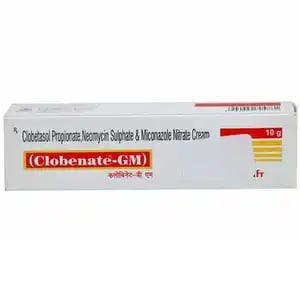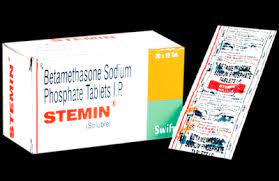angiguard AMLODIPINE
Introduction to angiguard
Angiguard is a medication primarily used in tablet form to treat high blood pressure and angina. Angiguard helps improve blood flow and reduce the risk of heart-related issues.
Composition of angiguard
Angiguard contains Amlodipine as its active ingredient. Amlodipine is a calcium channel blocker that relaxes and widens blood vessels, allowing blood to flow more easily.
Uses of angiguard
- Treats high blood pressure
- Manages angina (chest pain)
- Improves blood flow
- Reduces risk of heart-related issues
Side effects of angiguard
- Common side effects: swelling of the ankles or feet, dizziness, flushing
- Serious side effects: persistent dizziness, fainting, severe allergic reactions
Precautions of angiguard
Angiguard should not be used by individuals allergic to Amlodipine. It can cause low blood pressure, especially when starting treatment, leading to dizziness or fainting. People with severe liver problems should use it cautiously. Always inform your doctor about any other medications you are taking to avoid interactions.
How to Take angiguard
Angiguard is usually taken as a tablet once daily, with or without food. Follow your doctor’s advice for the correct dosage and method of administration.
Conclusion of angiguard
Angiguard, containing Amlodipine, is a therapeutic medication used to treat high blood pressure and angina. It is manufactured to improve blood flow and reduce heart-related risks. Always consult your healthcare provider for personalized advice on using angiguard effectively.


Can Angiguard be taken safely while breastfeeding?
Angiguard is considered safe to use while breastfeeding, as only small amounts pass into breast milk. However, it's important to monitor the breastfed infant for any unusual symptoms. Always discuss with your doctor before taking Angiguard while breastfeeding to ensure it's the best option for you and your baby.

Can Angiguard be taken safely while pregnant?
Angiguard is generally not recommended during pregnancy unless absolutely necessary. Limited evidence is available on its safety during pregnancy. If you're pregnant or planning to become pregnant, talk with your doctor about the safest way to manage your blood pressure. Your doctor can help create a treatment plan that protects both you and your baby.

Can I take Angiguard with other prescription drugs?
Angiguard can interact with other medications, such as certain blood pressure drugs, which may increase the risk of low blood pressure. It can also interact with medications that affect liver enzymes, altering Angiguard's effectiveness. Always inform your doctor about all medications you take to avoid potential interactions. Your doctor can help manage any interactions and adjust your treatment as needed.

Does Angiguard affect appetite?
Angiguard doesn't typically affect your appetite. Most people taking this medication don't notice changes in how hungry they feel. If you notice any unexpected changes in your appetite after starting Angiguard, talk with your doctor. They can help determine if these changes are related to the medication or if there might be another cause.

Does Angiguard affect mood?
Angiguard doesn't typically cause mood changes. Most people take this medication without experiencing anxiety or feelings of agitation. If you notice changes in your mood after starting Angiguard, talk with your doctor. These symptoms might be related to something else, like stress or another health condition. Your doctor can help determine what's causing any mood changes you experience.

Does Angiguard affect sleep?
Angiguard doesn't typically cause sleep problems. Most people take this medication without experiencing changes in their sleep patterns. If you notice changes in how well you sleep after starting Angiguard, talk with your doctor. Sleep problems might be related to something else, like another medication or a different health condition. Your doctor can help figure out what's causing your sleep issues.

Does Angiguard cause headaches?
Yes, headaches can be a side effect of Angiguard, but they are not very common. If you experience mild headaches, staying hydrated and resting may help. Over-the-counter pain relievers can also be used, but check with your doctor first. If headaches are severe or persistent, consult your healthcare provider. They can help determine if Angiguard is the cause and suggest appropriate management strategies.

Does Angiguard cause stomach upset?
Angiguard can cause stomach upset, but it's not common. Some people might experience nausea or abdominal pain. These side effects are usually mild. Taking Angiguard with food might help reduce discomfort. If you have severe or persistent stomach issues, talk with your doctor. They can help determine if Angiguard is the cause and suggest ways to manage these effects.

Does Angiguard cause weight gain?
Angiguard does not typically cause weight changes. Most people take this medication without noticing any impact on their weight. If you experience unexpected weight gain or loss, talk with your doctor. They can help determine if Angiguard is the cause and suggest ways to manage these changes. Maintaining a balanced diet and regular exercise can help manage your weight.

Does Angiguard have adverse effects?
Adverse effects are unwanted reactions to a medication. Common adverse effects of Angiguard include swelling of the ankles or feet, dizziness, and flushing. These effects are usually mild. Serious side effects, like severe allergic reactions or very low blood pressure, are rare but require immediate medical attention. If you experience any new or worsening symptoms, contact your doctor to discuss your treatment.

Does Angiguard have any safety warnings?
Yes, Angiguard has safety warnings. It can cause low blood pressure, especially when starting treatment or increasing the dose. Symptoms include dizziness or fainting. If you experience these, sit or lie down and contact your doctor. Angiguard can also cause swelling in the ankles or feet. If you notice significant swelling, inform your healthcare provider. Always follow your doctor's advice and report any unusual symptoms.

Does Angiguard interfere with sexual function?
Angiguard may cause sexual side effects, but they are not common. Some people might experience erectile dysfunction or a decrease in sexual desire. These side effects are considered rare and usually mild. If you notice changes in your sexual function while taking Angiguard, talk with your doctor. They can help determine if the medication is the cause and suggest ways to manage these effects. It's important to address any concerns with your healthcare provider to ensure your treatment plan is effective and comfortable for you.

Does Angiguard limit driving?
Angiguard can cause dizziness or light-headedness, which may affect your ability to drive safely. If you feel dizzy after taking Angiguard, avoid driving until these symptoms go away. When you first start this medication, pay attention to how your body responds before getting behind the wheel. Talk with your doctor about any concerns you have about driving while taking Angiguard.

Does Angiguard make it hard to think or concentrate?
Angiguard doesn't typically cause thinking problems or concentration difficulties. Most people take this medication without experiencing any changes in their mental focus or memory. If you notice problems with your thinking after starting Angiguard, talk with your doctor. These symptoms might be related to something else, such as low blood pressure or another health condition.

Does Angiguard make people tired or drowsy?
Angiguard can cause fatigue or drowsiness, but these side effects are not common. If you notice you're feeling very tired while taking Angiguard, talk with your doctor. Your tiredness might be caused by something else, like another medication or an underlying health condition. Your doctor can help determine what's causing your symptoms and recommend appropriate adjustments to your treatment plan.

For how long do I take Angiguard?
Angiguard is usually a long-term medication for managing high blood pressure or angina. You'll typically take it every day as a lifelong treatment unless your doctor suggests otherwise. Stopping this medication without medical advice could cause your conditions to worsen. Always talk with your doctor before changing or stopping your Angiguard treatment.

How Does Angiguard Work?
_**Angiguard**, also known by the brand name, _**Norvasc**_, belongs to a class of medications called calcium channel blockers. These medications work by blocking calcium channels - tiny proteins present in the walls of blood vessels that allow calcium ions to enter the cells. When calcium ions enter the cells, they cause the muscles in the blood vessels to contract, resulting in high blood pressure. Angiguard prevents calcium ions from entering the cells, leading to the relaxation of blood vessel muscles and improved blood flow._ _**This action of Angiguard effectively lowers blood pressure and eases blood flow.**_

How do I dispose of Angiguard?
To dispose of Angiguard, take it to a drug take-back program or collection site at a pharmacy or hospital. They will dispose of it properly to prevent harm to people or the environment. If you can't find a take-back program, you can throw it in the trash at home. First, mix it with something undesirable like used coffee grounds, seal it in a plastic bag, and then throw it away.

How do I know if Angiguard is working?
Angiguard is used to treat high blood pressure and angina. You'll know it's working if your blood pressure readings improve or you experience fewer angina attacks. Regular check-ups with your doctor are important to monitor your condition. They may adjust your treatment based on your blood pressure readings and how you're feeling. Always follow your doctor's advice to ensure the medication is working effectively.

How do I take Angiguard?
Angiguard is usually taken once daily, with or without food. It's best to take it at the same time each day, either in the morning or evening. You should swallow the tablet whole and not crush or chew it. If you miss a dose, take it as soon as you remember, unless it's almost time for your next dose. In that case, skip the missed dose and continue with your regular schedule. Do not take two doses at once. Always follow your doctor's instructions regarding diet and fluid intake while on Angiguard.

How long does it take for Angiguard to start working?
Angiguard starts working within a few hours, but it may take several days to see the full effect on blood pressure. For angina, you might notice improvement in symptoms within a week. Individual factors like age, overall health, and other medications can affect how quickly Angiguard works. Take it exactly as prescribed for the best results and consult your doctor if you have concerns.

Is Angiguard addictive?
Angiguard is not addictive or habit-forming. It does not cause dependency or withdrawal symptoms when you stop taking it. Angiguard works by relaxing blood vessels to lower blood pressure, and this mechanism does not affect brain chemistry in ways that could lead to addiction. You can feel confident that Angiguard doesn't carry a risk of addiction while managing your health condition.

Is Angiguard effective?
Angiguard is effective in treating high blood pressure and angina, which is chest pain caused by reduced blood flow to the heart. It works by relaxing blood vessels, allowing blood to flow more easily. Clinical studies show Angiguard effectively lowers blood pressure and reduces the frequency of angina attacks. It is often used as part of a comprehensive treatment plan, including lifestyle changes and other medications.

Is Angiguard safe for the elderly?
Angiguard is generally safe for the elderly, but they may be more sensitive to its effects, such as dizziness or low blood pressure. Elderly patients should be monitored closely, and dose adjustments may be necessary. Always consult with a healthcare provider to ensure Angiguard is appropriate for an elderly patient's health needs.

Is it safe to drink alcohol while taking Angiguard?
It's best to limit alcohol while taking Angiguard. Alcohol can lower blood pressure further, increasing the risk of dizziness or fainting. If you choose to drink, do so in moderation and be aware of how your body responds. Talk with your doctor about alcohol use while taking Angiguard to get personalized advice based on your health situation.

Is it safe to drink coffee or tea while taking Angiguard?
You can drink coffee and tea while taking Angiguard. There's no known interaction between caffeine and Angiguard. However, caffeine can increase heart rate and blood pressure temporarily. Enjoy caffeinated drinks in moderation and monitor how your body responds. If you have concerns, talk with your doctor about your caffeine intake while on Angiguard.

Is it safe to exercise while taking Angiguard?
Yes, you can exercise while taking Angiguard. However, be aware that Angiguard can cause dizziness, especially when starting treatment. Stay hydrated and avoid strenuous activities if you feel lightheaded. Listen to your body and rest if needed. Most people can maintain their regular exercise routine, but check with your doctor if you have concerns about your specific situation.

Is it safe to stop Angiguard?
Angiguard is usually used for long-term management of conditions like hypertension. Stopping it suddenly can cause your blood pressure to rise, increasing the risk of heart problems. Always talk with your doctor before stopping Angiguard. They may suggest gradually reducing your dose or switching to another medication to keep your condition under control. Your doctor will help you make any medication changes safely.

What are Angiguard possible harms and risks?
A side effect is an unwanted symptom caused by medical treatment. Common side effects of Angiguard include swelling of the ankles or feet, dizziness, flushing, headache, and fatigue. These side effects are generally mild and may occur in more than 1 in 10 people. It's important to note that new symptoms can appear when starting any new medication, and they may not be related to the medicine itself. Always consult a healthcare provider before stopping any medication.

What are the most common side effects of Angiguard?
Side effects are unwanted reactions to a medication. Common side effects of Angiguard include swelling of the ankles or feet, dizziness, and flushing. These occur in a small percentage of people. If you experience new symptoms after starting Angiguard, they might be temporary or unrelated to the medication. Always talk with your doctor before stopping any medication.

What disease or symptom is Angiguard used for?
**Angiguard: A Comprehensive Guide** *Angiguard*, a calcium channel blocker, is used to effectively manage *high blood pressure (hypertension)* and prevent future *heart disease, heart attacks, and strokes*. It also plays a crucial role in alleviating *chest pain* caused by *angina*, a condition characterized by reduced blood flow to the heart. **Composition:** Angiguard besylate, the active ingredient in *Angiguard*, is responsible for its therapeutic effects. **Uses:** * **High Blood Pressure (Hypertension):** Relaxes blood vessels, allowing blood to flow more easily, thereby reducing blood pressure. * **Prevention of Future Heart Disease, Heart Attacks, and Strokes:** Helps prevent the narrowing of arteries, reducing the risk of these cardiovascular events. * **Angina:** Dilates blood vessels, increasing blood flow to the heart, which alleviates chest pain. **Key Points:** * Angiguard is a safe and effective medication for managing hypertension and preventing cardiovascular complications. * It is well-tolerated, with common side effects including headache, flushing, and dizziness. * Regular monitoring of blood pressure and periodic medical check-ups are essential while taking *Angiguard*.

what is Angiguard?
**Angiguard:** * **Layman's Explanation:** Angiguard is a medicine used to treat high blood pressure (hypertension) and chest pain (angina). It works by relaxing and widening the blood vessels, making it easier for blood to flow and reducing the workload on the heart. * **Healthcare Professional's Explanation:** Angiguard is a calcium channel blocker that inhibits the influx of calcium ions into vascular smooth muscle cells and cardiac myocytes. This leads to vasodilation and a decrease in peripheral vascular resistance. Angiguard also has anti-anginal effects by reducing coronary vascular resistance and increasing myocardial oxygen delivery.

What is the usual dose of Angiguard?
The usual starting dose of Angiguard for adults is 5 mg once daily. Your doctor may adjust the dose based on your response and needs, with a maximum recommended dose of 10 mg daily. For elderly patients or those with liver problems, a lower starting dose may be considered. Always follow your doctor's specific dosing instructions for your health needs.

Who should avoid taking Angiguard?
Angiguard should not be used if you are allergic to it or its ingredients. Serious allergic reactions, which cause rash, hives, or swelling that makes breathing difficult, require immediate medical help. Caution is needed for people with severe liver problems, as Angiguard is processed by the liver. Always consult your doctor about any concerns or conditions before starting Angiguard.
Available in 2 variations

Angiguard 5mg Tablet
strip of 10 tablets

Angiguard 10mg Tablet
strip of 10 tablets












.svg)
